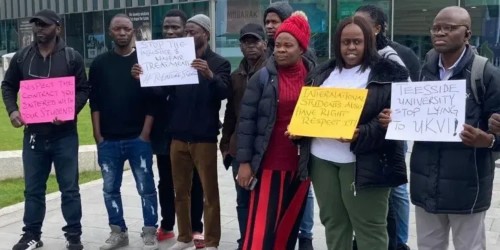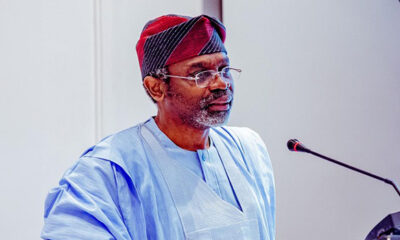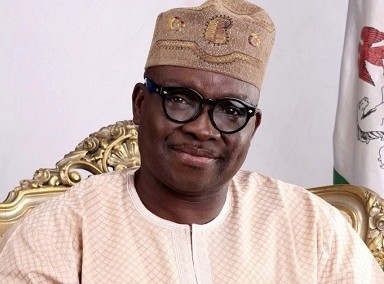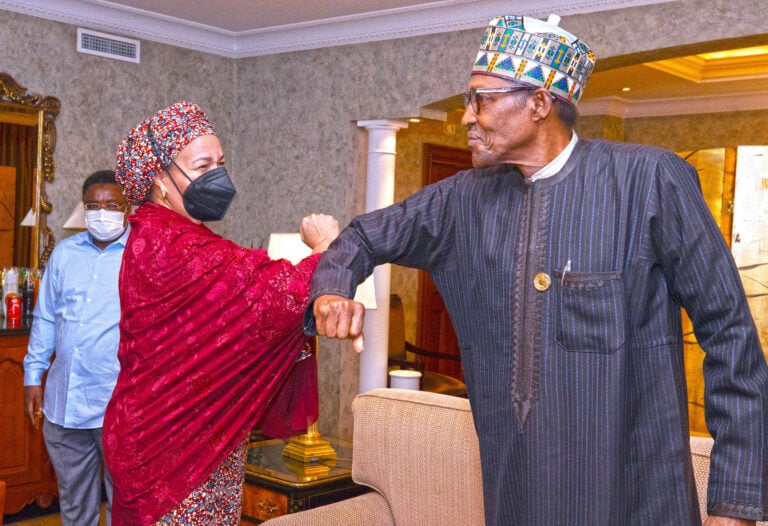Amina Mohammed, the deputy secretary-general of the United Nations, said the late former President Muhammadu Buhari was not at ease with politics, but he put those feelings aside in order to focus on leadership.
Buhari passed away on Sunday in London and was buried in Daura, Katsina state, on Tuesday. He served as Nigeria’s president from 2015 to 2023.
Speaking in an interview with Channels TV, Mohammed, who was minister of environment under Buhari from 2015 to 2016, paid tribute to her former principal.
She recalled that Buhari had encouraged her to accept the position of deputy secretary-general at the UN when the offer came.
We were sitting in a meeting in Marrakesh at a climate meeting, and Ban Ki-moon came over and said, ‘We think that the new secretary-general is going to ask you to come and be his deputy,’ and I said, ‘No, it’s not possible; I’ve come home, and I’m serving’, she said.
And then, I had a discussion with him (Buhari) to say that I really needed his support and if they came to ask him, he shouldn’t say yes. He said, ‘Of course not. We need all our people back here in the team to serve Nigeria; we need the best’.
So, I felt very confident and left Marrakesh for India, which was my next trip. And in India, I got a call from the current secretary-general to ask if I could be his deputy secretary-general.
So, I said with a lot of confidence, ‘I can’t. I can’t leave the service that I have, and I’m committed to President Muhamad Buhari.’
So, he said, “will you allow me to speak to him? I said, ‘Of course, you can speak to him’.
I have to tell you, I was very confident that my president would say no. So, I left India, I went home, and they said the president was looking for me.
I went and sat in front of him, and he talked to me for a long time about service, and I just thought, ‘My God, I know where he’s going’.
And at the end of it, after explaining why these things mattered in terms of representing the country. He said, ‘But of course, the decision is yours’. And in my head, I just thought, ‘My goodness me, of course, the decision is not mine’.
In our culture, when a man of that status, one that you look to as a father, speaks to you, know that he wants the best, and so the only thing you can say is ‘Yes, sir’.
Buhari was uncomfortable with politics
When asked about what Buhari’s leadership left behind for Nigerians, Mohammed said he believed in sacrifice and doing what was right for the country.
I think first and foremost is that this is an officer and a gentleman who went through from a military role to a democracy. He dropped his uniform, and he embraced democracy, she said.
I don’t think he was always comfortable with politics, but what he did was try and try and try again.
He believed in the rule of law, and he believed in a system that even if it was imperfect, he would keep trying until he got to where he needed to get to. And it was God’s will that he would be the president at the time he was.
Mohammed urged Nigerians to understand that, as Buhari did, national progress takes time and consistency.
The struggle of Nigeria is what I think he leaves—is that you don’t give up on this country; it’s the only one you have, and it is not perfect, but it’s up to us to do that nation building, she said.
And he was sometimes very excited and looked to see the potential and pushed us, but he was also at times disappointed in our responses in terms of what we were going to do and whether we were ready to go that last mile.
And I think that what we have to think about is that he gave it his all. Whenever he was asked to serve, he served, and we have to think about that.
To serve is not an easy thing to do. It is a sacrifice—enormous sacrifice to his wife, to his children, to his family, and to his lifestyle, because remember, he was also not a person who was always out there.
He was very much one that kept his own council and a very small gathering of trusted friends and family.
Mohammed said Buhari embodied conviction and consistency, and throughout her time working with him, he never strayed from his principles. She encouraged Nigerians to live by those same values.


 BIG STORY5 days ago
BIG STORY5 days ago
 BIG STORY2 days ago
BIG STORY2 days ago
 BIG STORY21 hours ago
BIG STORY21 hours ago
 BIG STORY2 days ago
BIG STORY2 days ago
 BIG STORY4 days ago
BIG STORY4 days ago
 BIG STORY2 days ago
BIG STORY2 days ago
 BIG STORY4 days ago
BIG STORY4 days ago
 BIG STORY21 hours ago
BIG STORY21 hours ago























